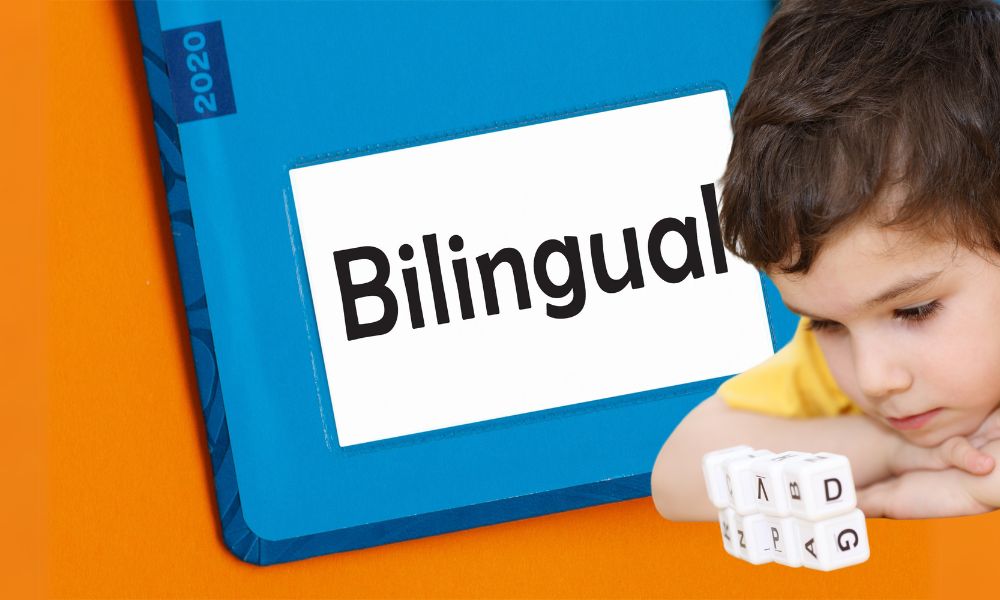There are many questions we get asked as speech pathologists, especially when working with children presenting with an early language developmental delay.
The most common question is whether learning more than one language can negatively impact a child’s overall language development. The simple answer is no.
First, we need to understand what bilingualism is and the way in which children learn more than one language.
-Bilingualism is fluency in or use of two languages (Oxford Languages, 2023).
-Simultaneous bilinguals are children who acquire two languages before the age of 3.
-Sequential bilinguals are children who learn a second language after the first language is well established.
Debunking Myths around Language Development and Delays
It’s understood that around 22.3% of Australians use another “main language” and around 460 languages have been identified in Australia (ABS, 2022).
Based upon this information, it can be assumed that with percentage of bilingual homes have increased and with that, children are more likely to be exposed to more than one language.
Multiple studies have been conducted to understand the impacts of acquiring more than one language and all evidence that has been conducted suggests that bilingual children are not more likely to experience a language delay.
A bilingual child who is presenting with a language delay is most likely experiencing a language disorder NOT caused by learning more than one language (Lowry, 2015).
A bilingual child’s overall vocabulary acquisition in each language may be smaller than a monolingual child’s. But a combination of both languages will most likely be the same as a monolingual child.
Further research has shown us that there have been no negative impacts from bilingualism on children with a specific language impairment, down syndrome and/or autism spectrum disorder (ASD) (Lowry, 2012).
A bilingual child does not have an extra delay or difficulties than a monolingual child who is also presenting with a language delay.
Should I focus on one main language if my child is presenting with a language delay?
It’s common for parents to worry that learning two languages simultaneously can impact a child’s language development.
If parents are wanting to implement the use of two languages within the home, this should be encouraged.
Occasionally, further issues can arise if a second language is suddenly withdrawn as the child may begin to feel disconnected from their family and the home language.
A link between the child and their culture can be jeopardised.
Alongside the impact on relationships and interactions between family members should they choose to speak this language between one another and not the child.

Instead, if the parents are wanting to implement the use of two languages within the home, this should be encouraged by continuing to expose their child to both languages consistently in order to support their complete language acquisition and development.
Evidence suggests that children presenting with a language delay that have a home environment with more than one language should be given every opportunity to acquire more than one language as it is a useful and important skills (Genese, 2009).
Overall, it is important to speak with a qualified speech pathologist in regards to any concerns you have regarding your child’s overall language development.
A qualified speech pathologist can support you and your family in being able to implement language development strategies for either monolingual or bilingual children in a natural and functional way.
If you are concerned with your child’s language, please call Box Hill Speech Pathology clinic on (03) 9899 5494
References
ABS, Australian Bureau of Statistics . (2022). Understanding and using Ancestry data. https://www.abs.gov.au/statistics/detailed-methodology-information/information-papers/understanding-and-using-ancestry-data
Genesee, F. (2009). Early Childhood Bilingualism: Perils and Possibilities. Journal of Applied Research in Learning, 2 (Special Issue), 2, 1-21.
Lowry, L. (2015). Bilingualism in young children: Separating fact from fiction – hanen. The Hanen Centre. https://www.hanen.org/SiteAssets/Helpful-Info/Articles/Bilingualism-in-Young-Children-PF.aspx
Lowry, L. (2012). Can children with language impairments learn two languages? – hanen. The Hanen Centre. https://www.hanen.org/SiteAssets/Helpful-Info/Articles/can-children-with-language-impairments-learn-2-lan.aspx

